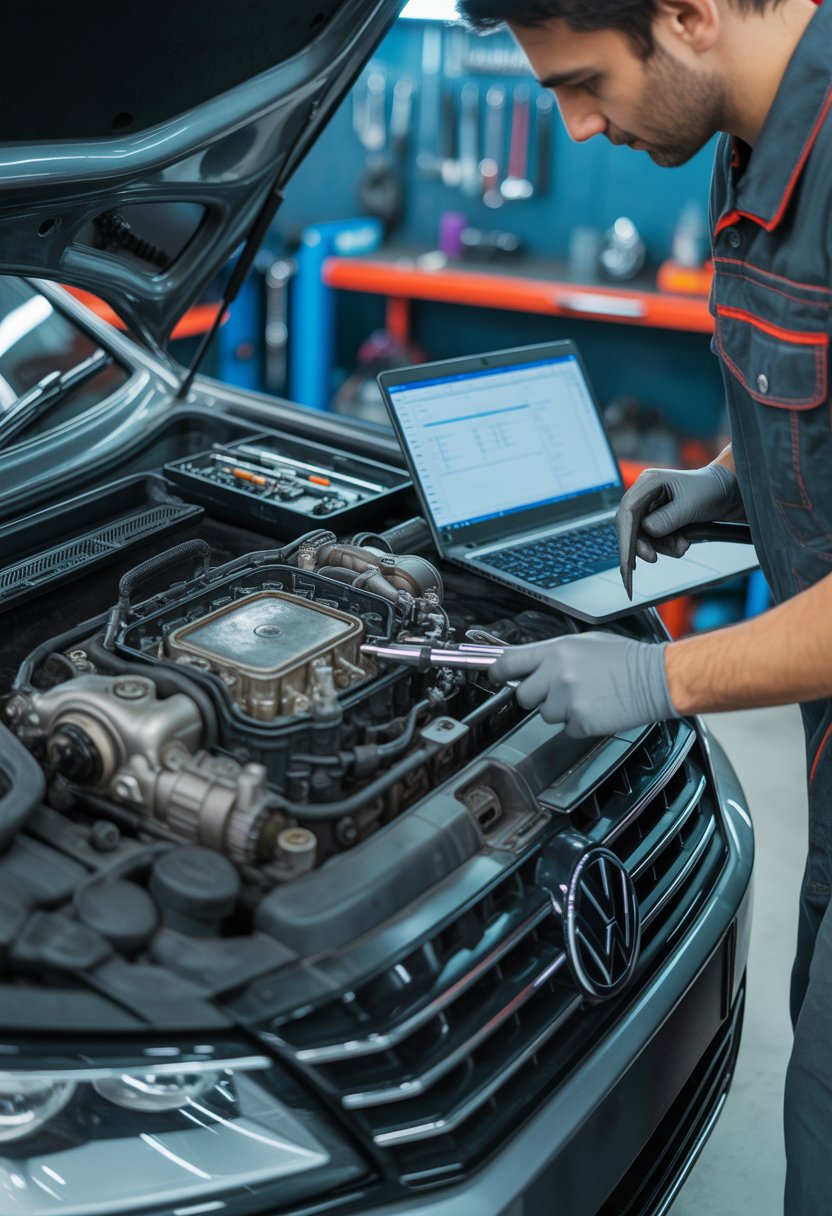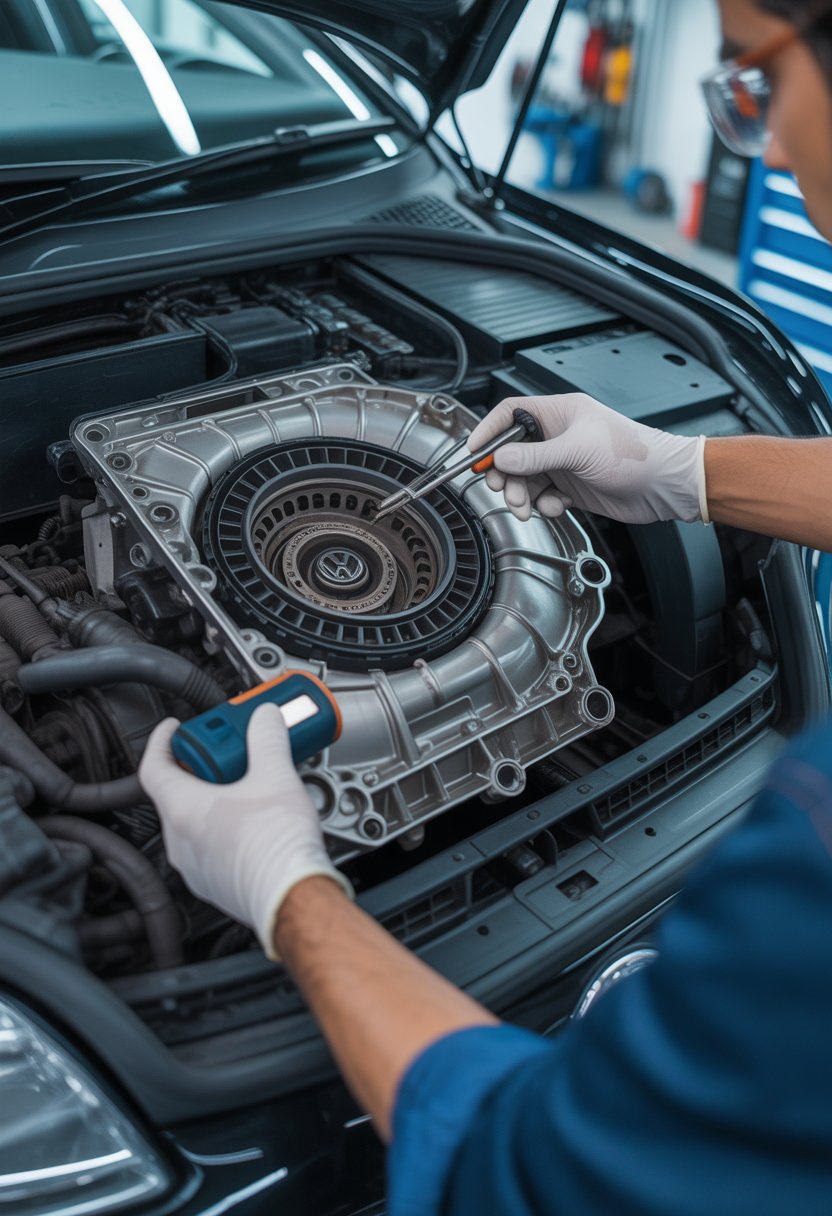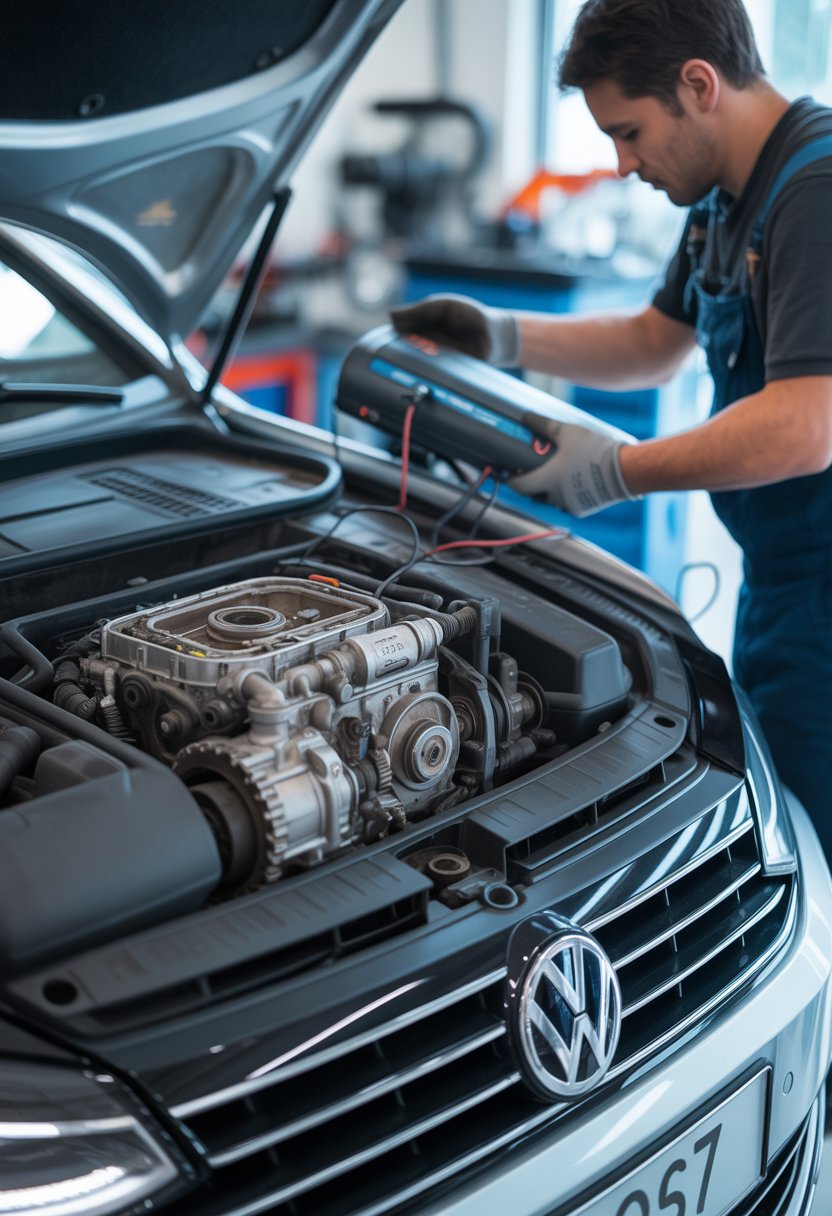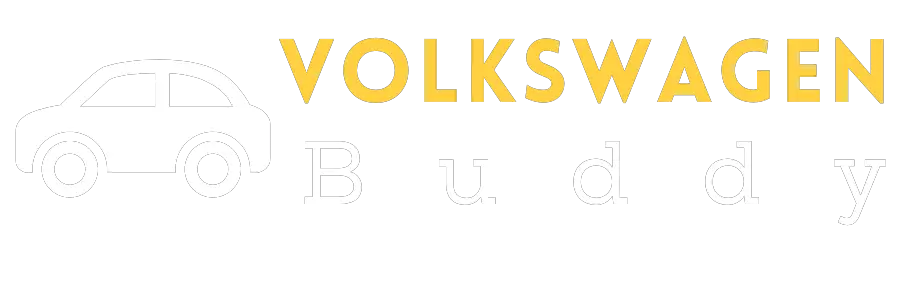VW DSG Transmission Problems Explained: Common Issues and Solutions
Common Transmission Issues

VW DSG Transmission Problems
Frequent Transmission Faults
DSG transmissions offer fast and efficient gear changes but can face several problems over time. One common fault is the transmission slipping out of gear unexpectedly. This can happen during acceleration or steady driving and causes a sudden loss of power. Another issue is rough or harsh shifting, where gear changes happen with jolts or thuds instead of smooth transitions. Drivers may also notice delays when shifting from park to drive or reverse, making the vehicle feel slow to respond. Transmission warning lights can appear on the dashboard, signaling that attention is needed. Lastly, transmission fluid leaks, often visible as red or brown spots beneath the vehicle, can bring damage if not fixed early.
Warning Signs to Identify Early Trouble
Recognizing the signs of transmission problems helps prevent bigger failures. Drivers should listen for strange sounds like grinding or whining when changing gears. An increase in engine speed without the car getting faster can also warn of slipping gears. Problems with starting or frequent stalling may indicate underlying transmission issues. When the accelerator pedal feels slow to respond or the car seems sluggish, the transmission could be struggling. Changes in fuel economy, especially when consumption goes up without change in driving habits, might also point to transmission wear.
Risks of Leaving Problems Untreated
Failing to fix transmission issues can cause bigger problems. Small faults often grow into costly repairs if ignored. Driving with a faulty transmission reduces safety because the driver loses smooth control over the car’s power. Vehicles known to have transmission problems tend to have lower resale values because buyers expect repairs. Worst case, neglecting issues can lead to the entire transmission failing, requiring a full replacement that is expensive and time-consuming.
| Issue Type | What to Look For | Possible Result |
|---|---|---|
| Gear slipping | Power loss during acceleration | Reduced vehicle control |
| Harsh gear shifts | Jolts or thuds when changing gears | Uncomfortable driving |
| Delayed engagement | Lag moving from park to drive/reverse | Unsafe driving |
| Warning lights | Transmission warning on dashboard | Signals serious faults |
| Fluid leaks | Red/brown fluid under car | Overheating, damage |
Drivers should monitor these symptoms closely. Any signs of trouble with the DSG or other transmission systems should lead to a thorough inspection by a qualified mechanic to avoid further damage.
Common Causes of Transmission Issues

Low or Dirty Transmission Fluid
Transmission fluid is essential for proper DSG gearbox operation. When fluid levels drop too low, the system can overheat, causing the gears to slip or shift roughly. If the fluid is dirty or contaminated, it fails to lubricate parts correctly, which speeds up wear on components inside the transmission. Checking and replacing fluid at recommended intervals helps avoid these problems.
Defective Mechatronics Unit
The mechatronics unit controls gear changes and clutch operation. When this unit malfunctions, shifting may become slow, rough, or unpredictable. Drivers might notice uneven performance or unusual behavior from the transmission. Since the mechatronics combines mechanical and electronic parts, issues often require a precise diagnosis to fix.
Clutch Pack Wear
The DSG uses dual clutches to shift gears quickly without interrupting power. Over time, these clutches wear out due to friction. Worn clutch packs cause gears to slip or force jerky shifts, reducing driving comfort and transmission reliability. Regular maintenance can help spot early wear before it leads to more serious damage.
Electrical Malfunctions
Several electrical elements affect DSG function, including sensors and wiring connected to the transmission control module (TCM). Faulty electrical parts can trigger warning lights and cause irregular gear changes. These problems often show up as transmission fault codes when scanned with diagnostic tools.
Transmission Software Errors
The TCM runs software that manages gear shifts. When the software has bugs or fails to update correctly, shifting may be slow, erratic, or fail to engage some gears smoothly. Software glitches can mimic mechanical issues but often clear after a system update or reset.
Solutions to Common Problems

The Importance of Routine Care
Regular care is essential to keep a DSG transmission running smoothly. Following a set schedule for checking and changing the transmission fluid helps prevent many common issues. Using the correct fluid and replacing it on time reduces wear on internal parts like clutch packs and the mechatronic unit.
Vehicle owners should watch for any warning lights or unusual signs such as shuddering, slipping gears, or delayed gear changes. These can indicate early problems that need professional attention. Ignoring these signs may lead to more costly repairs, including a complete transmission replacement.
It is also important to have the transmission system inspected by a skilled mechanic whenever symptoms arise. Professionals can test electrical components, scan for software glitches, and ensure sensors are working properly. Fixing minor issues quickly often prevents bigger damage.
Being proactive with transmission upkeep can improve reliability and extend the life of the gearbox. Simple actions like fluid changes, regular inspections, and timely repairs help avoid problems like fluid leaks, harsh shifts, and electronic faults. These steps not only protect the vehicle but also reduce repair costs over time.
Facts About DSG Transmission Issues

Frequency of Transmission Problems
Studies show that a significant portion of Volkswagen owners experience trouble with their DSG transmissions within the first five years. Roughly one in five drivers report issues such as gear slipping, rough gear changes, and delays when shifting. Among these, slipping gears is the most often reported problem. This is common across brands using DSG systems, including Audi, Skoda, and Seat.
Effects on Driver Safety
Transmission faults can affect how safely a car operates. When the DSG transmission malfunctions, it may cause sudden loss of power or make gear shifts unpredictable. Such failures increase the chance of losing control, which raises the risk of accidents. Data from safety organizations indicates that cars with known DSG problems are more likely to be involved in crashes than vehicles without these issues.
Recalls and Actions by Automakers
Manufacturers like Volkswagen have launched recall campaigns to fix DSG transmission faults in many vehicles. Some recalls have addressed risks like unexpected power loss and malfunctioning transmission control modules. For example:
| Year | Number of Vehicles Recalled | Issue |
|---|---|---|
| 2017 | Over 280,000 | Possible power loss |
| 2019 | Around 100,000 | Control module failure |
In response, Volkswagen has also extended warranties for certain models and provided software updates to improve transmission reliability. Diagnostic tools are regularly improved to catch issues earlier.
Expenses for Fixing Transmission Problems
DSG transmission repairs can be expensive, with costs varying widely. Typical repair or replacement bills range from $1,500 up to $4,000 depending on what needs fixing. Common repairs include changing the transmission fluid and replacing mechatronic units, which usually cost between $300 and $1,500. These repair costs can add up, affecting overall ownership expenses.
Owner Ratings and Feedback
Owners of vehicles equipped with DSG transmissions often praise their quick gear shifts and fuel economy. According to reports, these transmissions score well for driving feel and efficiency. However, satisfaction drops sharply when transmission problems appear. Reliability plays a crucial role in how owners view their cars over time, especially for Volkswagen, Audi, Skoda, and Seat models fitted with DSG gearboxes.
Frequently Asked Questions

What issues are common with Volkswagen’s 7-speed DSG transmission?
The 7-speed DSG often has problems with clutch wear, causing hesitation or rough gear changes. Electronic components like the mechatronics unit can fail, leading to shifting errors or transmission warning lights. Drivers may also notice slipping clutches or unusual noises during acceleration.
Which Volkswagen models are more likely to face DSG transmission troubles?
Models using the DQ200 and DQ250 DSG units are known to experience issues more often. This includes some versions of the Golf, Passat, Jetta, and Tiguan. Problems tend to arise in vehicles with higher mileage or less frequent maintenance.
What signs point to trouble with a 6-speed DSG gearbox?
Typical symptoms include delayed or rough shifting, jerking motions, and loud clunking noises. The gearbox might enter a “limp mode,” limiting speed to prevent damage. Drivers can also see warning lights related to transmission faults.
How reliable are Volkswagen DSG transmissions compared to other automatic gearboxes?
DSG transmissions can offer quick, smooth shifts and good fuel efficiency but are known to be less reliable than some traditional automatics. Issues with electronics and clutches mean they require more maintenance and careful use to avoid costly repairs.
Which car models use DSG transmissions?
Volkswagen, Audi, Skoda, and Seat vehicles commonly use DSG gearboxes. Popular models include the VW Golf, Audi A3, Skoda Octavia, and Seat Leon. These transmissions are chosen for their mix of efficiency and performance.
What costs are involved in fixing DSG transmission problems?
Repair costs can vary widely:
| Repair Type | Estimated Cost (USD) |
|---|---|
| Clutch Replacement | $1,500 – $3,000 |
| Mechatronics Repair | $1,000 – $2,500 |
| Full Transmission Replacement | $3,000 – $5,500 |
Routine maintenance like fluid changes is less expensive but important to prevent bigger issues.


![2019 Volkswagen Jetta E Brake Off While Car Off [Easy Fixes!]](https://volkswagenbuddy.com/wp-content/uploads/2024/05/2019-volkswagen-jetta-e-brake-off-while-car-off-easy-fixes_4537-768x531.jpg)
![Volkswagen Polo Speedometer Not Working [Causes & Proven Solutions]](https://volkswagenbuddy.com/wp-content/uploads/2024/05/volkswagen-polo-speedometer-not-working-causes-proven-solutions_3903-768x531.jpg)


![2006 Volkswagen Jetta Flywheel Clatter When Shutting Off [Fix It For Good]](https://volkswagenbuddy.com/wp-content/uploads/2024/05/2006-volkswagen-jetta-flywheel-clatter-when-shutting-off-fix-it-for-good_4509-768x531.jpg)